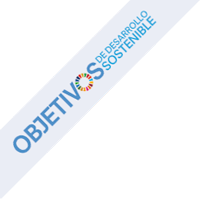
Esteban Tapella, professor at the International University of San Juan, visited Loyola Andalucía University to participate in the II Permanent Seminar “Contributing from the University to the achievement of the SDGs from its research mission”, organized by the ETEA Foundation – Institute for Development and the Doctoral School of Loyola University, with funding from the Secretary of State for International Cooperation and for Latin America and the Caribbean (Ministry of Foreign Affairs and Cooperation). The aim of the seminar is to reflect on the contribution that the civil society-university alliance can make to the SDGs through applied research that is useful to society.
Tapella’s lecture, entitled “How to improve quality in the evaluation of public policies? The role of evaluation standards from the Latin American perspective“, was held last Friday, March 29, at the Cordoba campus of Loyola University and is already the third session of this permanent seminar.
Taking advantage of Professor Tapella’s visit, on Thursday, March 28, the seminar “Why do we evaluate? Evaluations that make a difference”, coordinated by the Doctoral School in collaboration with the Departments of Quantitative Methods and Economics of Loyola Andalucía.
Although with different approaches, both seminars are related to Tapella’s latest book ‘Dejar Huella. Historias de evaluación que marcaron la diferencia’, a document that summarizes evaluation experiences in Latin America and identifies the elements that enable social evaluation to become a factor that enhances development.
A book to (re)discover the value of evaluation: stories of learning and social change.
The book is aimed at managers and technicians of social programs as well as academics, evaluators and the general public. The stories and their lessons illustrate how to turn evaluative processes into powerful trajectories of learning and social change.
The document also provides a guide to evaluation standards to help conduct high-quality, use-oriented and impact-oriented evaluations. In short, evaluations, as Tapella himself explained, “that are useful for decision-making and that contribute to development processes in the region”.
Esteban Tapella
Esteban Tapella specializes in fields of study involving in-depth analysis of socioeconomic reality, qualitative and quantitative research methodologies, actor-oriented research, as well as design and evaluation of social policies and programs, and human resource management. He consults in evaluation and systematization of development projects and is a lecturer and researcher at the Institute of Socioeconomic Research at the National University of San Juan. He has a long professional experience with increasing responsibilities in the field of community and rural development, and social planning and evaluation, particularly in the coordination and management of social policies and training programs at local, regional and national levels.


